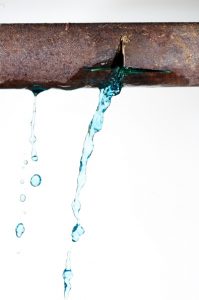 There’s no more important resource for your home than water. Having fresh, clean water come into our homes at the turn of a handle is something we all expect, and rightfully so, but there may come a time when this is not as reliable as it’s always been.
There’s no more important resource for your home than water. Having fresh, clean water come into our homes at the turn of a handle is something we all expect, and rightfully so, but there may come a time when this is not as reliable as it’s always been.
The water lines running underneath your property are built tough, in order to withstand the high flow of water moving into your home over the years. But at some point, they will need to be replaced.
When this happens, you’ll need to call in professionals. So how can you tell if they actually need replacement or if they only require repairs? Is there a way to catch a leak early? Learn more from our professional plumbers.
The Lifespan of the Water Line
The amount of time you can expect to keep the water lines in your home depends on when they were installed and what types of material they are made from.
- Galvanized Steel Pipes – These are no longer installed in new homes. You will only find galvanized steel piping in homes built at least 50 years ago, and their lifespans are only a bit longer than this. While they may last 50-70 years, we strongly recommend replacing galvanized pipes sooner than this. They can corrode suddenly and cause leaks that threaten your home and your water supply.
- Copper – Copper pipes can last about 50-70 years as well. Unfortunately, however, pitted corrosion may take them sooner than that. Copper is a safe alternative to the old standard of galvanized steel pipes and is commonly used in recent developments. Conditions in the soil and other considerations may cause all or part of the piping to have a shorter life.
- Plastic – Chlorinated polyvinyl chloride pipes, or CPVC pipes are commonly used in place of metal piping. CVPC (NOT regular PVC) can withstand warm or cool temperatures but can crack when they freeze. In many cases, they only make up the water piping within the home. These can last over 100 years, as far as we know!
Repair or Replace?
If you’re noticing symptoms of a water line leak or clog, or if a technician has told you that your pipes need work, you may be wondering whether it’s time for whole-house repiping or if a simple repair will do. Let’s help you find some answers.
Corrosion Requires Replacement
When a pipe begins to corrode—when it rusts to the point that it begins to flake and develop holes from the inside out—there’s usually no turning back. Sure, you could repair a piece of the pipe that’s got it particularly bad, but this only contains a part of the problem, and the pipes will only continue to corrode through. If there are signs of water line corrosion, it’s best to replace them.
Low Water Pressure May Indicate Trouble
One of the ways to tell that your water lines may have leaks is to take notice when you have lower-than-usual water pressure throughout the house. This might mean there is a leak, especially when combined with high utilities and any signs of water leaking around the house.
But You May Just Need Repairs
Low water pressure and other water line troubles may only indicate that your pipes are in need of repair! They could be clogged with sediment, something a chemical cleaning could take care of. You could have a valve in need of adjustment, or a portion of the pipes may need repair.
Contact MarGo Plumbing Heating Cooling Inc. to find out what will work best for your pipes. We are trusted plumbers in Clifton, NJ.
